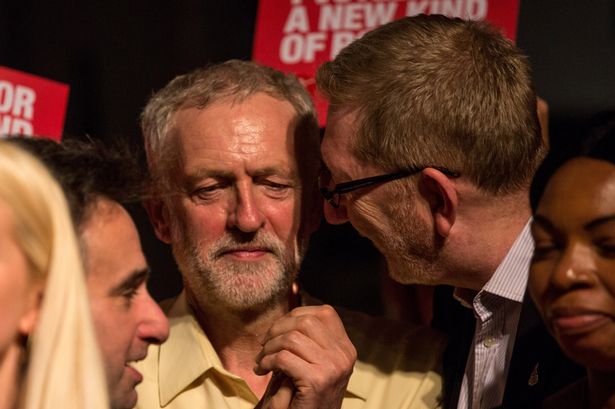
Throughout the election campaign the immigration policy of the Labour Party has been dictated by the need to square the demands of British capitalism for migrant labour with appeals to racist sections of the electorate who would prefer migrants were excluded from Britain completely.
The final version of the Labour manifesto included a ‘tougher’ approach to immigration, with the addition of a pledge to ‘control’ immigration and a statement that action is needed to prevent migrant workers undercutting the wages of British citizens. There is little evidence that migration actually reduces wages of British workers.
Labour’s ‘tougher’ approach was fronted by shadow secretary of state for Brexit Sir Keir Starmer, reportedly under pressure from unions including Unite and GMB. It was applauded by sections of the middle class left. Socialist Party NEC member Julie Beishon, welcomed the move at a public meeting at Salford University on 31 May, arguing that a more open immigration policy would have lost votes! These are the representatives of a privileged layer of British workers who see their future with British imperialism, and view workers of oppressed countries as a threat. Under Corbyn, Labour’s policy will continue to be subservient to such interests.
The Labour manifesto expressed opposition to the co-option of landlords, doctors, teachers and bank clerks as border guards as set out in the 2014 and 2016 Immigration Acts, but only on the basis that they are doing this on an ‘unpaid’ basis instead of professional border guards. It made no mention of repealing these racist laws and instead promised to appoint 500 new border guards, and to replace the income threshold for spouse visas with an equally anti-working class requirement that those on spouse visas must have no recourse to public funds. Without an increase to migrants’ rights, a demand absent from the manifesto, Labour’s promises to take action against the exploitation of migrants seem inevitably to lead to further criminalisation.
An internal Labour document leaked at the end of May considered the possibility of reopening Tier 5 of the Points Based System. This tier allowed for recruitment of unskilled labour with extremely limited rights, and was suspended in 2008 because unskilled labour was already in ample supply through EU migration. Corbyn was quick to dismiss any suggestion that this was party policy, reiterating the manifesto promise of ‘a new system which is based on our economic needs, balancing controls and existing entitlements’. This is in line with Labour’s commitment to negotiate a Brexit deal that includes free trade but not free movement of workers. The priority is clear – ‘our economic needs’ means the needs of British capitalism. Given that the British economy is structurally dependent on low-waged migrant labour, particularly in agriculture, health and social care, some replacement for EU migration post-Brexit must necessarily be found.
Labour’s election campaign operated entirely within the limits of what is acceptable for British imperialism: the needs of British capitalism are paramount; the needs of workers from other countries are not worth mentioning; concern is expressed for British workers who are supposedly under threat from migrants, and this is used to justify further restrictions on migrants’ rights. All of this is the common sense of British bourgeois politics, and it has been accepted wholesale by Corbyn, the Labour Party and its apologists on the left.
Tom Vickers
Fight Racism! Fight Imperialism! 258 June/July 2017




